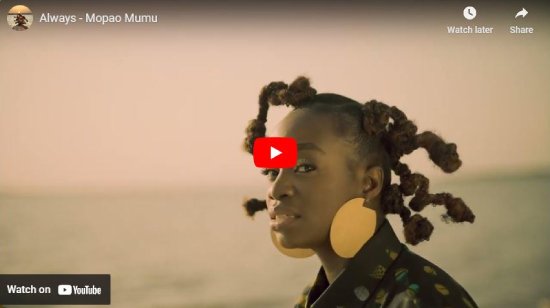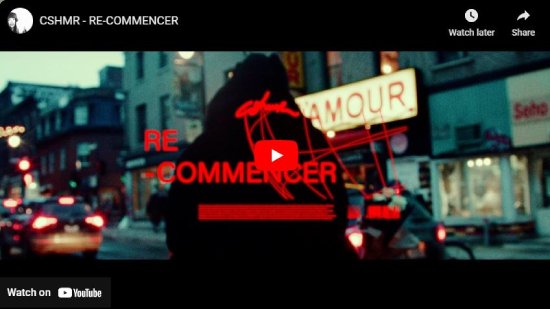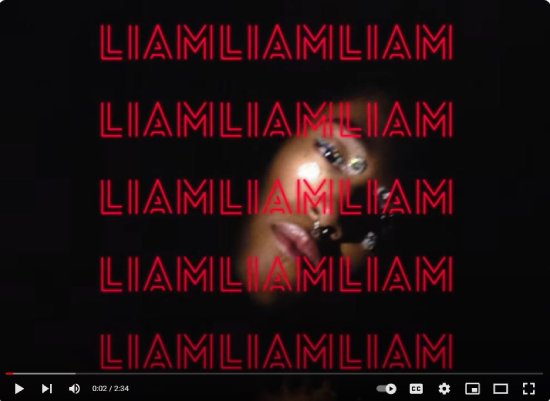In collaboration with ADVANCE Music Canada, SODEC (Société de développement des entreprises culturelles), and SOCAN, Gala Dynastie organizes, alongside its annual awards ceremony, an event called Dynastie Unplugged. Hosted this edition by Marième Ndiaye at the Place des Arts Salon urbain, on April 24, 2024, the event shines a light on upcoming artists, including comedians, podcasters, and four musicians nominated in the Discovery of the Year category. Paroles & Musique met with them.
Mopao Mumu
“I was born in the Democratic Republic of Congo,” says singer-songwriter Mopao Mumu, who skillfully blends R&B with African pop. Just before the turn of the millennium, “my family decided to move to South Africa, and I stayed there until I was 18. I came to Montréal to attend university” in mathematics and economics.
Those studies came in handy for the self-managed artist’s career, as she readily admits. She’s only getting started, but her first steps are very promising. “I’ve always wanted to make music, but I didn’t know where to start,” she says. “Everything became a lot clearer a few years ago.”
Having ties to the Moonshine collective, she sang alongside Pierre Kwenders. Her music is admittedly less dancefloor-oriented,but remains influenced by the South African club music that rocked her youth. “Like kwaito, an ancestor of amapiano,” she says. “It makes me really proud to see how much those styles managed to influence today’s music.
“As far as musical identities go, it’s very hard for me to choose between the sounds of Congo and South Africa. Both countries gave us great musicians, in very particular and different styles, so I just find inspiration in all of it,” she says, citing the influence of the King of Congolese rumba, Papa Wemba, as well as his fellow countryman Fally Ipupa, and young afrobeats stars Wizkid and Burna Boy.
Burna Boy’s two sold-out shows at Montréal’s Centre Bell was a big motivation for Mopao. “It gives me hope that he can sell out a venue like that here in Canada,” she says. “I think you need to be appreciated at home before you can try to be popular elsewhere, and that’s why the nomination at Gala Dynastie was very encouraging.”
The day after her performance at Dynastie Unplugged, Mopao Mumu will give a free concert at Studio TD, as part of the Série libre of the Montréal International Jazz Fest.
Dix-Iple Deca
Although he was nominated in the Discovery of the Year category, Dix-Iple Deca is a veteran of the underground rap scene. “Ultimately, what you’re asking is, how do we define a discovery?” the MC chuckles. “The best way I can put it is that there’s a big ‘90s sound revival right now. You see kids wearing Nirvana T-shirts, for example. Well, to them it’s a discovery. Something that was there, but that we ignored, maybe because that artist didn’t have a marketing team to prop them up.”
Deca is one of the athletes of rhyme that kept the rap torch burning in Québec before the industry opened up somewhat to that sound. “One of the major struggles we face as artists of the hip-hop scene,” he says, “is carrying on, despite an industry that still doesn’t seem quite ready to make some space on the radio, in the market in general, for a musical genre that – if we look at it in a capitalistic perspective – would be profitable,” says the MC, who deplores that radio is still so reluctant to play rap. “Young people don’t feel represented on these airwaves.”
Fans got acquainted with the wise rapper’s style in 2022, when he participated in Season Two of the talent show La fin des faibles, on Télé-Québec. He’s currently preparing to release a new album, and will showcase two of its songs during Dynastie Unplugged, alongside his youngest son – who’ll act as his hype man. “I’ve worked in the shadows for years, and it feels good to see people recognizing the work I’ve been putting in,” says Deca with joy. “Better late than never, as they say!”
CSHMR
His stage name is pronounced “cashmere,” and the name is a good indicator of his approach. It’s a melodic style, imbued with melancholy, a silky-smooth voice, and songs that fall somewhere between R&B and minimalist trap. “I’d say I make music that heals, and that you feel more than listen to. It’s a vibe, an emotion,” says CSHMR, a conservatory-trained viola player from France, who came to Montréal to play basketball – his other passion.
He creates, composing and recording solo, in his bedroom, but seeks collaborators from both sides of the Atlantic, “according to the musical style I wish to explore,” he says. “For example, if a song has an afro or dancehall flavour, I delegate and look for the person who has the right ear and expertise to give me the right sound.”
For the past three years, CSHMR has been sharing his melodious productions on YouTube and SoundCloud, because “a melody can make your head bob, make you dance, and make you forget your worries,” he says. “I don’t make club music, but my next album will have rhythms that could play in a club. What matters is that my work appeals to all kinds of audiences.”
Naïma Frank
Singer-songwriter Naïma Frank has been on a roll since the release of her first EP, Petite fille devient grande, in 2022. The release won her last fall’s Gamiq Award for Soul/R&B Album or EP of the Year, a musical category that, for the first time ever, will appear on the ADISQ gala ballot this summer.
“I was really happy that ADISQ decided to add an R&B/Soul Album of the Year category,” says Frank. “I said to myself, ‘I’d like to participate in the ADISQ Gala one day.’ So, when I heard the news, I thought to myself, ‘Well, this could potentially happen faster than expected,’ because I for sure thought it would take a decade to get to that point.”
Largely ignored in Québec, R&B and soul have, finally, started attracting the interest of a new generation of musicians, who learned that musical vocabulary from our neighbours South of the border. “R&B is in full growth mode, and I felt it made no sense that it wasn’t recognized more here,” says Frank. “This new category is excellent news for me, as well as all the artists who are making this kind of music.
“I must admit, however, that when this announcement was made, my collaborators and I were happy – but also a bit perplexed; we wondered whether the artists that will actually be nominated will be truly representative of the genre. What are the criteria for selection, what will be considered soul or R&B by the members of the jury? I do know it’s the people from ADVANCE, and Corneille, who pushed for the creation of the category, so I’m confident. But there’s still a tiny sliver of apprehension,” she says, while admitting that even she doesn’t make “pure” R&B, and that she plans to showcase her Creole heritage more on her next album.



